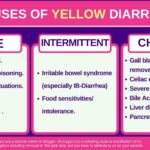Can Stress Cause Bloody stools? & when to worry?
Our content is not intended nor recommended as a substitute for medical advice by your doctor. Use for informational purposes only.
Key insights:
- There is no direct correlation between stress and blood in the stool.
- Stress and anxiety in the long term may lead to chronic gut disease that ends in bloody stool, as with ulcerative colitis and peptic ulcer diseases.
- Physical stress cannot cause blood in the stool unless you have a predisposing condition like piles.
- You should see your doctor when you experience blood in your stool without an apparent cause.
- Worrisome blood features in the stool include massive or prolonged bleeding, black stools (melena), weight loss, a family history of colon cancer, etc.
Continue reading this article for more in-depth insights into the link between stress and bloody stools.
Can psychological stress and anxiety cause blood in the stool?
There is no direct correlation between psychological stress, anxiety, and blood in the stool. Instead, blood in the stool can be due to piles, anal fissures, inflammatory bowel disease, dysentery, or colorectal cancer.
No scientific evidence suggests any link between your psychological state (stress, anxiety, depression) and bleeding into the stool.
However, chronic stress can cause diseases such as peptic ulcer disease, which may lead to blood in the stool.
Gut diseases related to stress and anxiety (such as irritable bowel syndrome and functional dyspepsia) don’t cause blood in stools.
If you have blood in your stool, you must report the issue to your doctor to find the cause. It is not a sign to ignore.
Can physical stress cause blood in the stool?
Physical stress (such as vigorous workouts or extreme sports) often doesn’t lead to blood in the stool. However, if you have pre-existing piles (hemorrhoids), stress such as straining may cause bleeding from your piles.
Physical stress alone in people without gastrointestinal diseases is not known to cause blood in the stool. However, if you are recently experiencing single or multiple attacks of bloody stools, consult your doctor.
Bloody stool must be investigated. While most causes are benign, blood in stool is considered a red flag sign, especially in older than 50.
What are the most common causes of blood in the stool?
1 . Piles (hemorrhoids).
Piles are dilated veins in the wall of your rectum and anal canal. They are by far the most common cause of blood in the stool.
Physical stress, as with vigorous sports, lifting heavy objects, straining, or coughing, may increase the pressure inside hemorrhoid veins. Thus, such stress can lead to blood in the stool by inducing hemorrhoidal bleeding.
Symptoms:
- Painless blood in the stool (often recurrent, small amounts, mixed with stool or when you wipe).
- A sense of mass in the rectum or sitting on a foreign object.
- External hemorrhoids may cause pain or irritation in the perianal area.
- Eventually, the hemorrhoids may become thrombosed and inflamed with severe pain and bleeding.
- Itching around the anus.
- Mucus or blood in your underwear.
- A sense of skin tag or lump at the anal opening.
2. Anal fissures.
An anal fissure is a longitudinal breakdown or ulcer at the wall of the anal canal.
It is often caused by a severe stretch of the anal canal lining, like constipation or vaginal delivery.
The landmark symptom of anal fissure is scanty blood in the stool with severe pain during bowel movements.
Most fissures start acutely and resolve within a few weeks.
3. Dysentery.
Dysentery is an infection of the rectum and the colon. It causes severe rectal inflammation with acute-onset diarrhea, blood, and mucus in stool.
People with dysentery experience a sudden onset of severe diarrhea with a persistent urge to poop (tenesmus). Fever and abdominal pain are common.
Two leading causes of dysentery:
- Bacterial infection with Shigella bacteria (bacillary dysentery).
- Protozoal infection with entamoeba (amoebic dysentery).
4. Diverticular disease.
Diverticular disease is a prevalent condition that increases as you grow older. For example, over 60% of people 60 in Western countries have diverticular disease (reference).
Diverticula are sac-like projections that occur in the wall of the colon. Sometimes, these diverticula bleed and cause blood in the stool. But there is no relation between stress and diverticular bleeding.
5. Other less common causes of blood in the stool
- Crohn’s disease.
- Ulcerative colitis.
- Colorectal cancer.
- Large colon or rectal polyp.
- Peptic ulcer disease (blackish stool).
- Esophageal or stomach varices (black stool in patients with liver cirrhosis).
How does stress affect your gut and bowel habits?
Your gut is hundreds of millions of nerve cells that regulate your digestive functions. In addition, the gut nervous system (called the enteric nervous system) is in constant contact with your brain (gut-brain axis).
Stress, anxiety, and other psychological morbidities can impact digestion and cause serious diseases.
Common associations include (source):
- Chronic or recurrent abdominal pain and bloating.
- Irritable bowel syndrome.
- Excess gas production.
- Inflammatory bowel diseases (which can cause blood in the stool).
- Functional dyspepsia.
- Stress-induced vomiting.
- Stress-induced diarrhea.
- Acid reflux (gastrointestinal reflux disease).
- And others.
When to worry?
As a role, any blood in the stool should be investigated by your doctor. However, the condition is even more problematic when there are:
- Massive amounts of blood in the stool.
- Blood in the stool for long durations.
- Weight loss.
- Blackish stools.
- A sense of mass in the rectum.
- Chronic blood and mucus in the stool.
- Fever.
- Vomiting.
- Severe intolerable abdominal pain.
- Family history of colon cancer.
- Being older than 50.
- Evidence-based
- Written by a doctor.

Related Posts:
- Can Stress Cause Appendicitis? Gastroenterologist Explains.
- IBS Yellow Stools: Is It A Normal Or A Bad Sign?
- Why is my Poop Green? 11 Causes & when to worry.
- Blood On The Outside Of The Stool: 7 Causes & When To Worry.
- Black Watery Diarrhea: 5 Causes & When To Worry.
- 7 Causes Of Blood In Stool With IBS & When To Worry.






